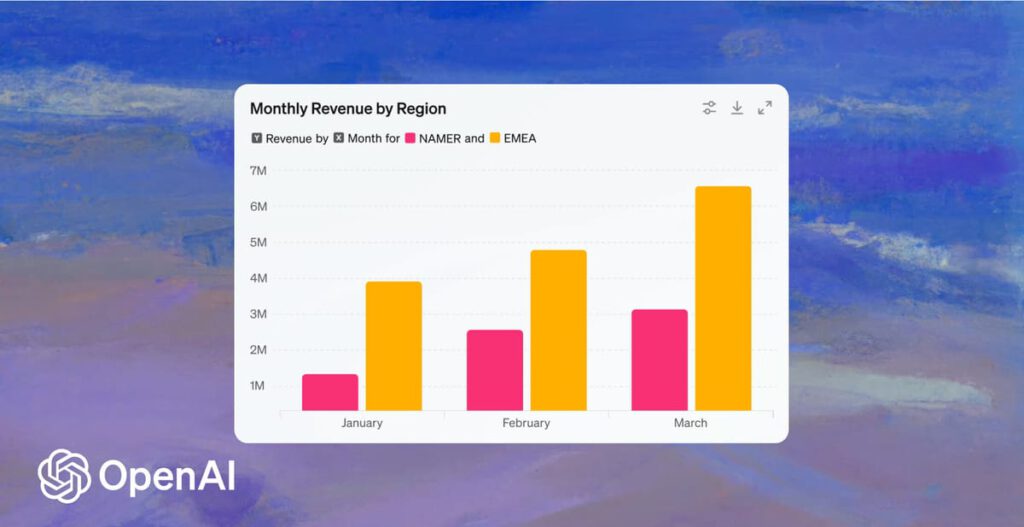OpenAI has announced significant improvements to data analysis for ChatGPT with the new GPT-4o model. The update includes several features that streamline the data analysis process for users.
Firstly, ChatGPT now enables direct file uploads from Google Drive and Microsoft OneDrive, allowing users to access and analyze data stored in cloud services without having to download and upload files, making the process more efficient and convenient.
Once files are uploaded, users can interact with tables and charts in the new expandable view, creating a more immersive analytical experience. The expandable view allows users to stay focused on the data and dynamically interact with ChatGPT to ask follow-up questions and dig deeper into the insights revealed.
Additionally, the ability to customize and download charts makes the output more presentation-ready. Users can now choose colors, hover over chart elements, and ask additional questions to refine their visualizations. This ensures that charts are not only informative, but also aesthetically pleasing, ready for immediate use in professional presentations and documents.
With these enhancements, ChatGPT further establishes itself as a powerful tool for data analysis, combining natural language processing with an intuitive understanding of datasets. By generating code and handling a wide range of data tasks, from merging datasets to creating graphs, ChatGPT empowers both those new to data exploration and experts looking for time-saving solutions for everyday tasks.
As with all ChatGPT features, OpenAI is committed to comprehensive security and privacy measures.
We do not use ChatGPT Team and Enterprise customer data for training, and ChatGPT Plus users can opt out of training through their data controls.
Rolling out to ChatGPT Plus, Team, and Enterprise users over the coming weeks, these data analytics improvements will undoubtedly be welcomed by professionals looking to leverage the power of AI in their data-driven endeavors.
Chris McKay is the Founder and Editor-in-Chief of Maginative. His thought leadership on AI literacy and strategic AI adoption is respected by top academic institutions, media outlets, and global brands.

